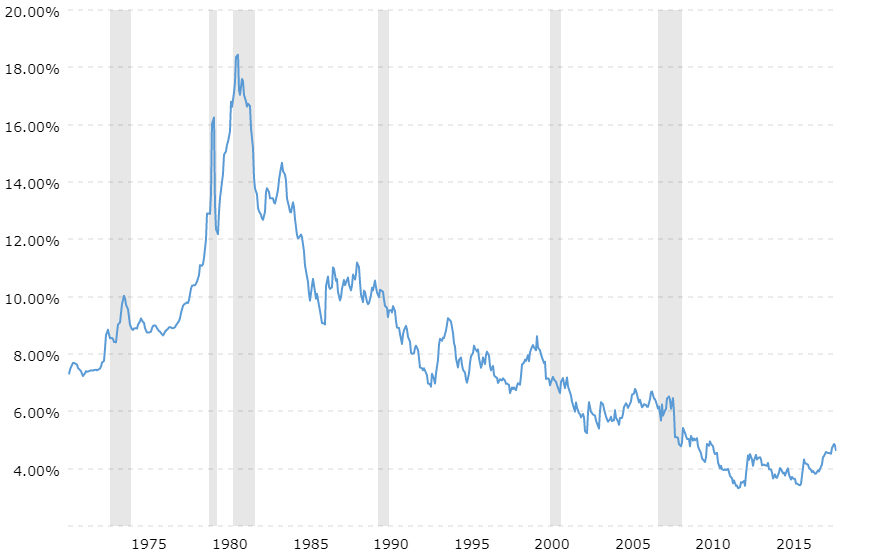
Interest rates are still relatively low compared to the last 40 years. In 1980 we purchased our first home and paid 15% interest on our mortgage, and as I look back at that purchase I’m still amazed. Our only concern at that time were the monthly payments; that purchase was the perfect starter home for us.
My how times have changed… Fast Forward 39 years to 2019 and interest rates are between 4.5 and 5% depending on several qualifying factors such as credit score, debt to income ratio, purchase price, and type of property (Condo, Single Family etc.).
Now that interest rates appear to have reached their low point in this cycle, the topic of rising interest rates is in the news again.
I was invited to a round table discussion at the local ABC News station, ABC7. The expert panel consisted of Richard Stern, Financial Adviser; Jerry Zivic, Consumer Reporter; Leslie Swart, Mortgage Lender and myself, Mark Boehmig, a local Realtor with Michael Saunders & Company.
The topic of discussion, as you can guess, was about rising interest rates and the effect on the local real estate market. So what are the actual effects of the rise in the interest rates?
This is the way I see it:
- housing prices have been steadily rising for the past 8 years
- mortgages have been tougher to qualify for
- the government rules in place for mortgages have made the market more secure
- interest rates have been very low for the past 8 years
With low rates and increasing housing prices, the federal government is slowly increasing the 10 year treasury bond yield, which increases the rate on money loaned to banks. This will slow down the rise in home pricing, which keeps inflation in check.

Another thing to keep in mind, a 1% increase in interest rates equals a 10% decline in borrowing power. To put this in monetary terms, if a buyer could previously qualify for a mortgage on a home with a value of $200,000. their borrowing power has now been reduced to $178000.
Real estate will adjust to these new parameters, therefore slowing the rise in housing prices. As more inventory comes on the market the supply will increase, shifting the market from a sellers market, to equilibrium, then perhaps a buyers market.
As far as the Manatee and Sarasota counties of Florida are concerned, our market is a little different. 45-50% of our sales are cash. How can this be? Many people retire here. They have sold their homes in other places and come here with cash! Others come here buying second or third homes, and a majority of those sales are cash as well.
Keep these factors in mind if you are in the market to buy or sell property in the near future. Having the knowledge of market conditions is important when the time comes.
The full panel discussion can be viewed here.

